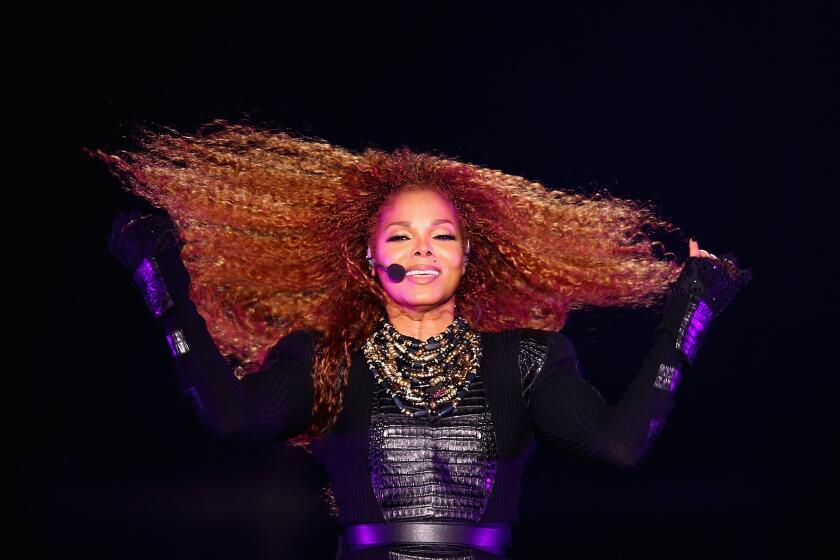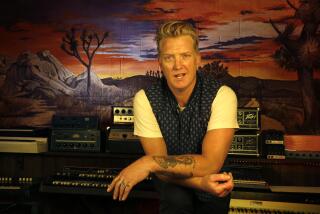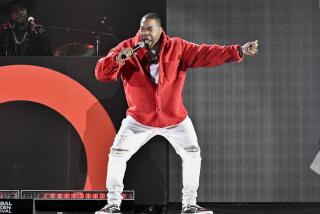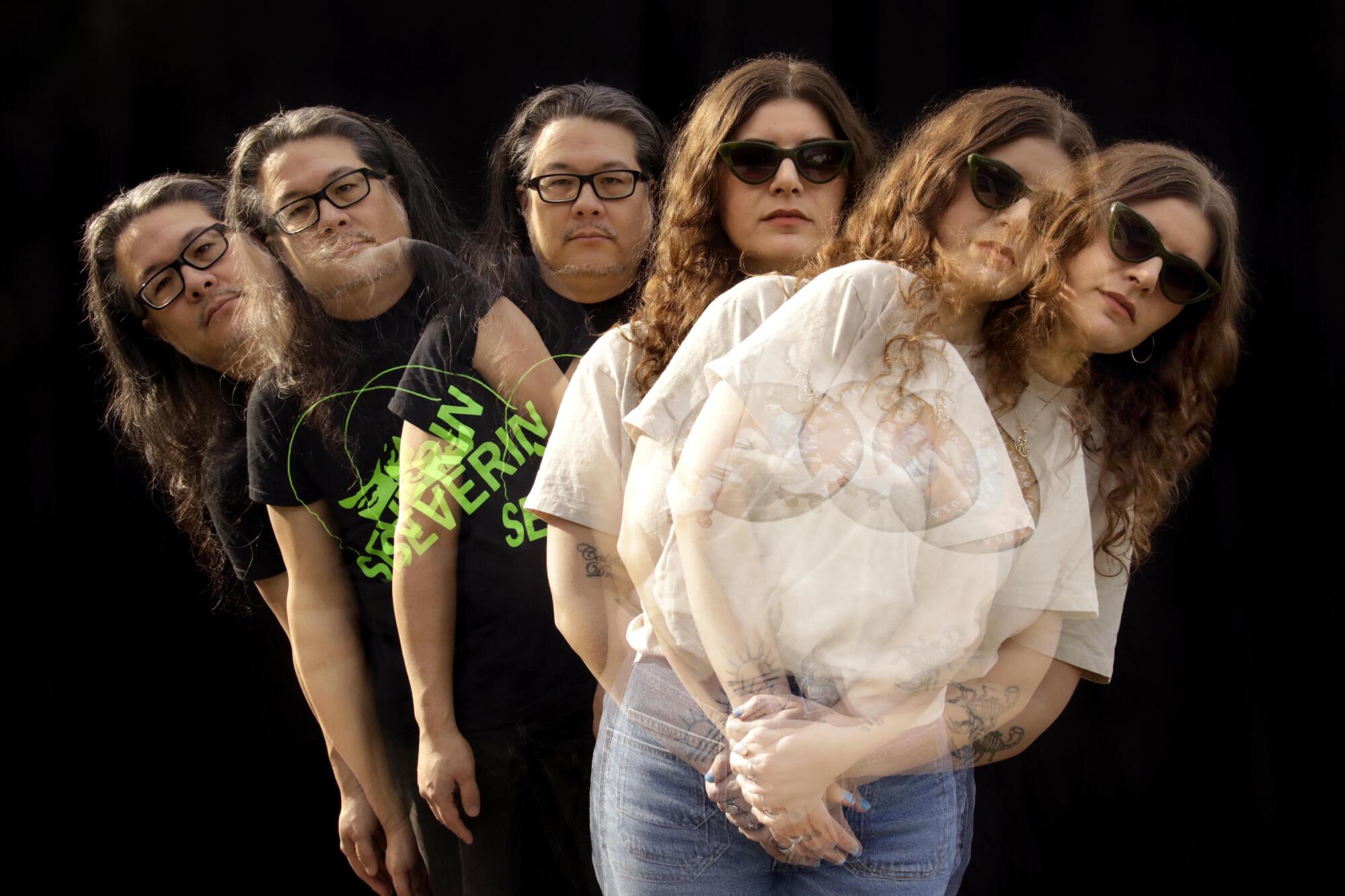
- Share via
After two years of pandemic-driven delays, the veteran L.A. indie-rock band Best Coast was so ready to hit the road in January that they’d named their 25-date cross-country tour “Finally Tomorrow.” It’d been 22 months since the duo — guitarist-vocalist Bethany Cosentino, 35, and guitarist Bobb Bruno, 48 — had released its most recent LP, “Always Tomorrow.” Like most working-class musicians playing clubs and theaters, they and their usual team (five band members, two crew, a merch seller and a bus driver) had gone that whole time without touring income — the way most acts of their size make a living.
They’d postponed the tour twice before widespread vaccination made a return to the road seem possible in summer 2021. But the Delta variant complicated those plans, and in June, Best Coast decided to try again starting Jan. 11, 2022.
As Omicron ripped through the country over the holiday season, though, familiar feelings of anxiety returned. After assessing the risks (medical, financial and mental), Cosentino and Bruno announced on Jan. 6 that they were “devastated” to cancel the tour for a third time. “It was an incredibly difficult decision to make but one that we ultimately felt was right,” they wrote.
Our panel of experts discuss this weekend’s flawed but engrossing ‘Janet’ docuseries.
Two shows, Feb. 11 and 12 at Highland Park’s Lodge Room, were supposed to be a homecoming, but “it just didn’t seem fun to be out on pins and needles, where someone starts coughing and you’re like, ‘Oh God, do we have to put them in a room?’” Cosentino told The Times. “The music industry is suffering, especially bands at our level. But fans were also like, ‘Thank you for canceling. We wanted to see you but we weren’t sure if it was safe, and now you made that decision for me.’”
It wasn’t an easy or obvious choice. Many acts are touring now, and others are warily eyeing spring and summer returns. In the absence of clear-cut guidance from government or industry, artists are more or less on their own to decide if performing is safe right now. (The band is scheduled to open for Jawbreaker at the Wiltern on April 1.)
We talked to Best Coast and their team about how they came to their agonizing decision, and their not-so-rosy prospects for the year ahead.
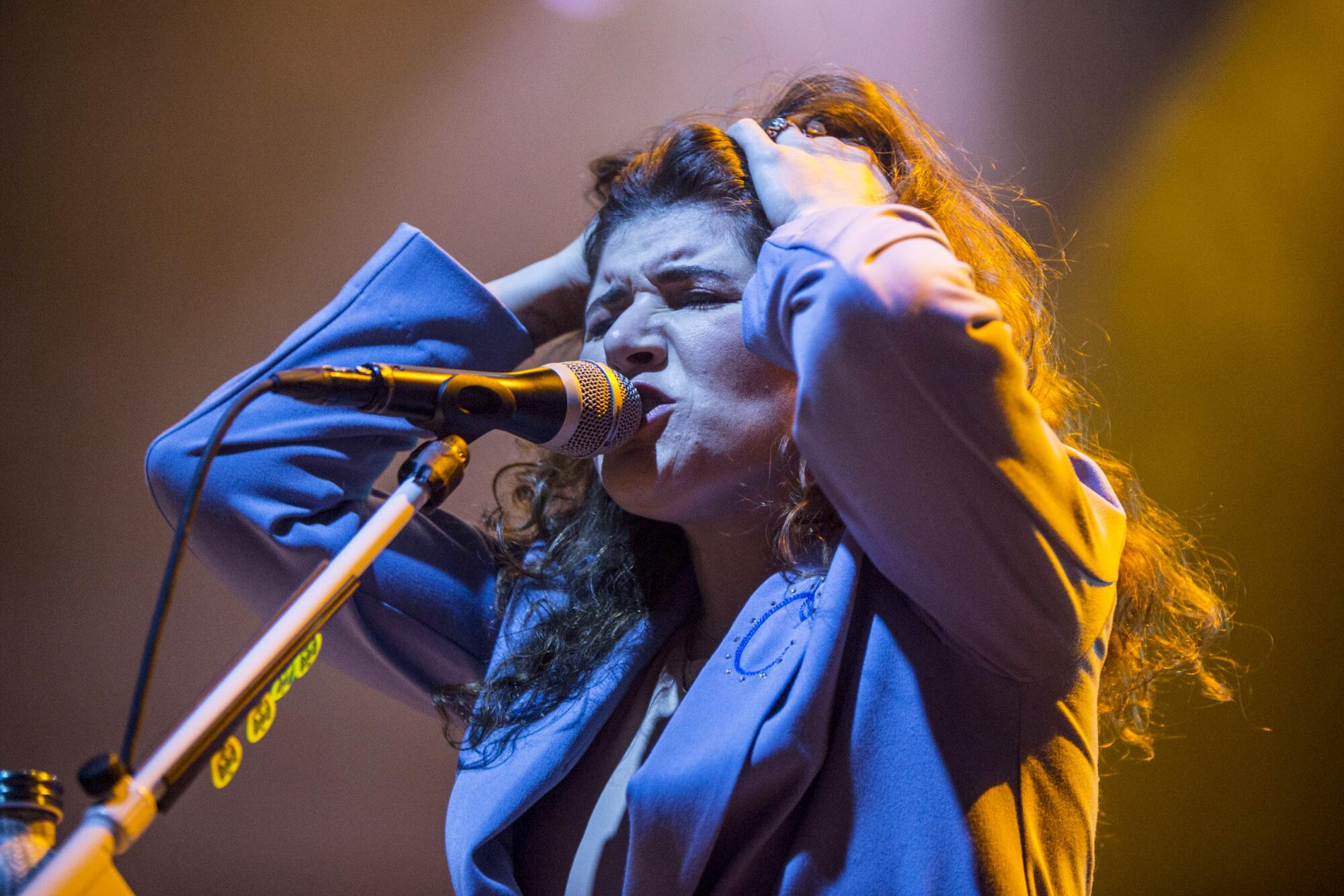
1. Anticipation
Bobb Bruno: I love being on tour. I love the bus and being around the band and getting to play.
Bethany Cosentino: In December, I knew COVID was still around but it felt like we were getting back to normalcy.
Jordan Kurland, manager: In 2020, they were a third through the tour when the world shut down. This tour was called “Finally Tomorrow” because they were getting the tour they were supposed to have 22 months ago.
Ross Harris, sound engineer/tour manager: Everybody was looking forward to it. As much as getting in front of an audience, we just wanted to hang out and be together.
Sam Hunt, booking agent: When COVID first hit, it was full chaos. We’d rescheduled the tour twice, and back then we thought, “If we still have a problem in January 2022, we’ll have much bigger things to worry about.”
Kurland: We started following Omicron closely in December. Everyone was on pins and needles. We were asking, “What happens if Bobb or Bethany gets COVID and has to quarantine for five days? We’ll lose three or four shows.” That’s the difference between being profitable and not.

2. Decision
Cosentino: Around the holidays when Omicron came, it started feeling weird to be selling tickets and promoting the tour when thousands of people are testing positive in New York. It was simpler in 2020 when there was a nationwide mandate for no events. We didn’t have a choice. Now there’s people on tour, at sporting events. It was a lot harder to make a decision this time.
Bruno: The closer it got to the dates, the chances of everyone staying healthy seemed so slim. In rooms full of people, you just never know what the situation is. It was already going to be a lot to take on money-wise if we lose a week. It’s not just lost show income, it’s the expense of putting someone in a hotel to wait it out. It just seemed like it was going to be a money pit. And not safe.
Cosentino: Right before Christmas, I got on the phone with Jordan and Sam, and we decided to postpone the first week and tack it onto the end of the tour. I called Jordan the first Monday of the year with so much anxiety because the tour started the following week, and I felt so unsettled. That’s when the conversation started to move.
Hunt: Touring is worth doing when you can count on doing it. But for midsize club tours, if you play 20 shows, the profit margin can be as little as two or three shows. There were so many scenarios where the result would be lost revenue, and that risk is borne by the artist.
Kurland: On Jan. 5, we made the decision. Ultimately it was up to Bethany and Bobb to make the call.
Bruno: I’m really obsessive about daily case numbers for L.A., and when numbers got crazy after New Year’s Eve, it felt like it was a good idea to not do the tour.
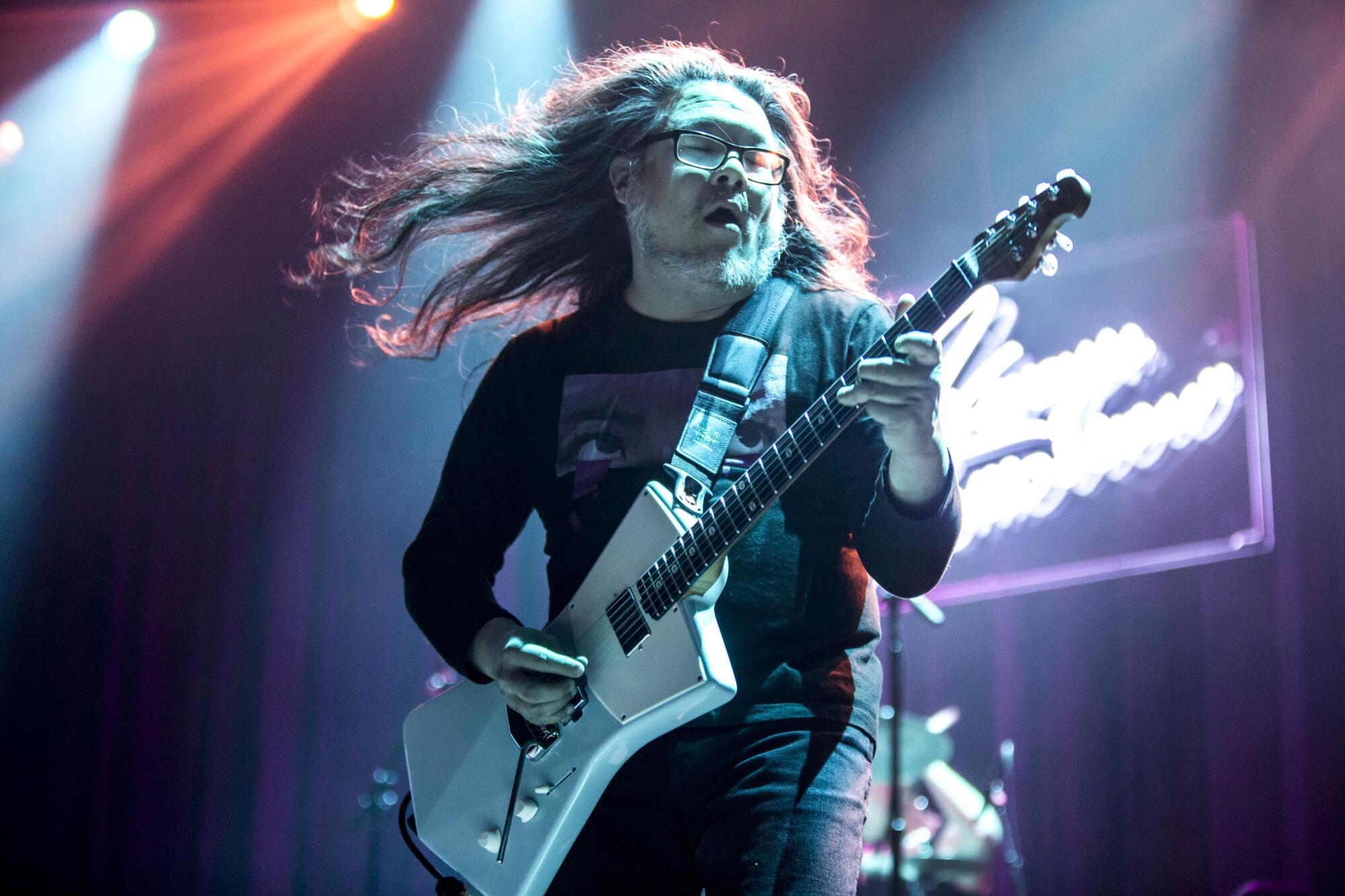
Hunt: It would have been a huge risk. And it’s not like you’re going to a cool dinner and drinks with your buddies after the show. You keep in your bubble as best as you can. Maybe you don’t even walk into a venue until you perform.
Kurland: The no-show rate impacts merch sales, and depending on the band, we break even on guarantees but make a certain amount on merch to make up the difference. Tours can go perfectly, but if on the second-to-last day three people get COVID, then you have to pay to quarantine them, and that eats up your profits.
Cosentino: If one person gets sick, we shut down shows, we isolate them, we pay for hotels, and the tour goes into debt. Even though we’ve done it for 12 years, we can’t afford to call a guy to fill in on drums and pay to put someone up in a hotel.
3. Impact
Kurland: We all put in a ton of work, and now the crew we hired no longer has that work: The tour manager, the engineer, the merch people all thought they’d get paid. This tour isn’t life-changing money, but no one’s made money on tour for two years. Best Coast is not getting paid millions on streams.
Hunt: I had three artists with tours in January. Best Coast made a decision not to play, another one postponed to March, and one artist plowed forward and it was fine but it was not the same experience. I don’t think any one of those three regrets their decisions.
Cosentino: I felt really bad for our touring band, our tour manager, the front-of-house engineer. It sucks for everyone involved.
Bruno: Bands bigger than us can pay crew to stay home, but we don’t have that luxury.
Kurland: Everyone has to decide what their appetite for risk is. At the end of the day you weigh it all: What if you have an event where people get sick, or you have less attendees because people aren’t coming indoors? For Best Coast, the negatives outweighed the positives.
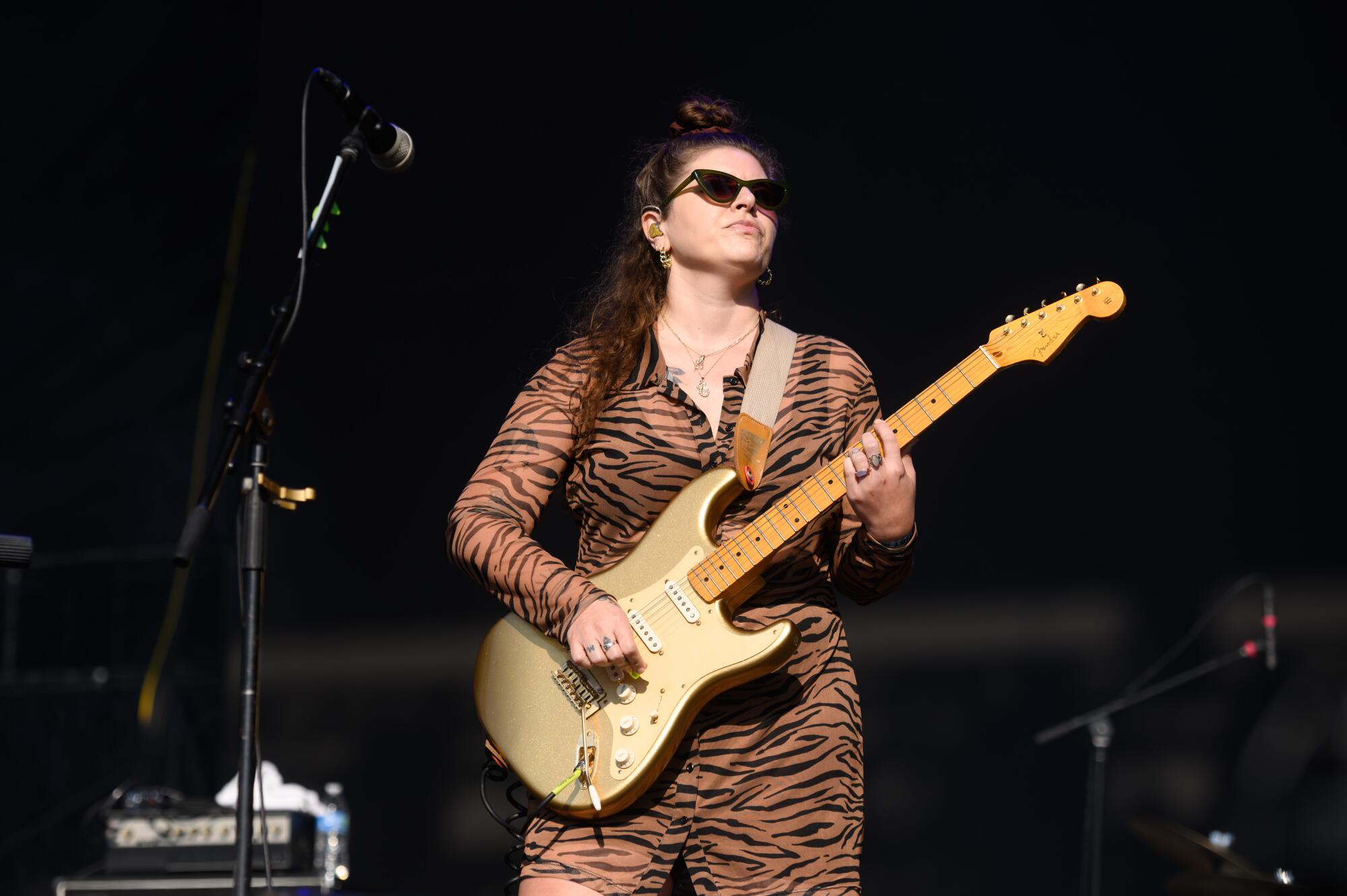
4. Future
Bruno: I have savings but not enough to get to summer when we could tour again. I got a bunch of work offers this week for various side jobs, so that was a huge relief.
Harris: I’ve started getting more into sound design, recording, podcast editing, things along those lines. It’s been difficult not to work, but I’ve learned a lot.
Cosentino: It’s bizarre to not have an income. I live with a partner who has a job, but it’s definitely very anxiety-producing to know I don’t have income right now. Royalties are nowhere near what I make on the road.
Kurland: Venue availabilities are tight for the rest of 2022. Bus companies are sold out until October. If you rent gear, it’s really crowded. It doesn’t mean you can’t get stuff done, but for Best Coast, we’ll look to do it later in the year.

Hunt: It’s hard to have any blanket takeaways from this for the future. Drop counts, the actual people who attend events, are not great right now. But it’s better this week than last week, and the same with the previous week.
Harris: I’m curious how it’ll affect small independent venues, because I’ve got a lot of love for those and rent is a huge burden.
Cosentino: I’ve only canceled maybe two shows ever, because I was incredibly sick. COVID puts a lot of things into perspective about how hard you push yourself on the road.
Kurland: They’re not having to sell their homes or anything, but there’s an emotional side too. The reason to tour is because you have fun doing it.
More to Read
The biggest entertainment stories
Get our big stories about Hollywood, film, television, music, arts, culture and more right in your inbox as soon as they publish.
You may occasionally receive promotional content from the Los Angeles Times.
